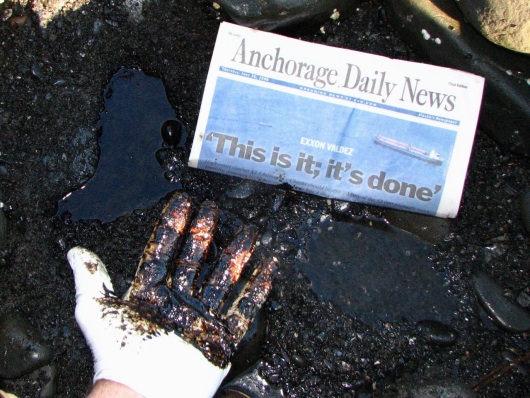The Transcript:
She knows where she comes from, and she knows who she works for. She stands up for what's right, and she doesn't let anyone tell her to sit down.
(APPLAUSE)
She's fought oil companies and party bosses and do-nothing bureaucrats and anyone who puts their interests before the interests of the people she swore an oath to serve.
She's exactly who I need. She's exactly who this country needs to help me fight...
(APPLAUSE)
... to help me fight the same old Washington politics of me first and country second.
My friends and fellow Americans...
(AUDIENCE MEMBER SHOUTS)
MCCAIN: I am very pleased and very privileged to introduce to you the next vice president of the United States...
(APPLAUSE)
... Governor Sarah Palin of the great state of Alaska.
By Matt Daily
NEW YORK, Aug 29 (Reuters) - Alaska Gov. Sarah Palin is seen as a strong advocate for opening new areas to oil drilling, including the Arctic National Wildlife Refuge, but has taken a hard line in negotiations with oil companies and raised taxes on the state's energy producers.
By Telis Demos, writer-reporter
August 29, 2008: 8:02 PM EDT
(Fortune) -- Within hours of Senator John McCain picking Alaska Governor Sarah Palin as his running mate, the talking heads of CNBC had coined a new term: "Palinomics." In a nutshell, the doctrine stands for expanding the search for domestic oil and gas as a solution to the energy crisis.
...
Once in office, Palin took an aggressive stance toward the oil companies. Her nickname from high-school basketball, "Sarah Barracuda," was resurrected in the press. Early in her term, she shocked oil lobbyists when she was so bold as to not show up when Exxon CEO Rex Tillerson came to Juneau to meet with her. Palin, after scrapping Murkowski's deal, would not give Big Oil the terms they wanted, yet insisted that the companies still had an obligation under their lease to deliver gas to whatever pipeline Alaska built. She invited the oil companies to place open bids to build a pipeline, but they refused. A bid by TransCanada, North America's largest pipeline builder, was approved by the legislature in August.
Palin also raised taxes on oil companies after Murkowski's previous tax regime produced falling revenues in 2007, despite skyrocketing oil prices. Alaska now has some of the highest resource taxes in the world. Alaska's oil tax revenues are expected to be about $10 billion in 2008, twice those of previous year. BP says about half its oil revenues now go to taxes, when royalty payments to the state are included. Earlier this week, Palin approved gas tax relief for Alaskans, and paid every resident $1,200 to help ease their fuel-price burden.
To be sure, it would be an overstatement to brand Palin as an enemy of Big Oil. Her husband works as a production supervisor for BP. And her support for drilling in the Alaska Natural Wildlife Reserve, as well as exploiting Alaska's natural gas resources, certainly won't endear her to environmentalists. "Personally, I have respect for the industry," she said in an interview with Fortune last year, "for the contributions it's made to our state ... and great respect for what their CEOs are doing. We know their mission, to take as much as possible and leave as little behind."
Bay News 9 on-line
Palin served as chairwoman of the Alaska Oil and Gas Conservation Commission, two terms as mayor of Wasilla and two terms on the city council.
Palin started Alaska's Petroleum Systems Integrity Office -- an oversight and maintenance agency for the state's oil and gas equipment, facilities and infrastructure. She created the Climate Change Subcabinet that would forge a climate change strategy.
At present, Palin chairs the Interstate Oil and Gas Compact Commission.
Palin is married to Todd Palin, a lifelong resident of the state and an oil production operator on Alaska's North Slope.



















